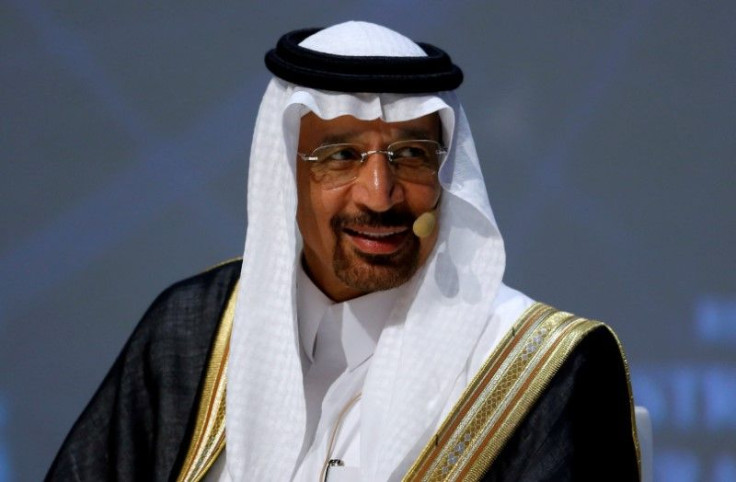Oil Prices: Ministers Say End To Depressed Levels Is Near; See $60 Next Year

Oil ministers Sunday predicted depressed crude oil prices are nearing an end although it will take work to bring markets back into balance.
Saudi Oil Minister Khalid al-Falih told a news conference following the Gulf Cooperation Council ministerial meeting in Riyadh both market fundamentals and demand have begun to improve, Agence France-Presse reported.
“We are optimistic that oil prices will continue to improve in the future,” al-Falih said.
Energy Minister Mohammed al-Sada of Qatar agreed, saying the “difficult phase is over,” stressing the necessity of restoring stability as soon as possible, the Kuwaiti news agency KUNA reported.
"Although the market is heading to being balanced, it needs our joint effort, and we all agreed that we need to take measures to bring back this balance," he said.
Crude oil closed at $51 a barrel Friday on the New York Mercantile Exchange. Prices hit a 30-year low of $28.36 in January from a high of $110 in the first half of 2014.
Russian Oil Minister Alexander Novak said oil states again are cooperating and will work to “develop the best mechanism to solve the issue of stabilization.”
That means assigning production quotas and agreement among producing states to adhere to them. Iran, Libya and Nigeria, however, are still ramping up production.
OPEC and Russia are scheduled to meet Monday in advance of the OPEC technical meeting in Vienna Friday and Saturday. The cartel invited Russia and other key nonmembers to that session.
Adam Sieminski, the administrator of the U.S. Energy Information Administration, told Bloomberg he expects oil prices to get into the upper $50s by the end of next year.
Oil Price.com said, however, the price increase is more dependent on sentiment than fundamentals.
“When the sentiment is right, every piece of bad news becomes good news, and prices rise on weird justifications,” Rakesh Upadhyay of Divergente LLC said in a blog post.
At $50 a barrel, U.S. oil shale projects become profitable. Low prices forced cutbacks in U.S. production earlier this year, but an increase to $60 a barrel will put U.S. production back into play.
"Market forces are clearly working after a testing period of sub-$30 oil prices. ... Oil demand is expanding at a healthy rate despite slower global growth," al-Falih said.
Low oil prices have put a strain on Saudi banks and government revenue. Gulf News reported the money supply is under pressure due to negative growth, prompting Riyadh to enter the bond market.
© Copyright IBTimes 2024. All rights reserved.






















